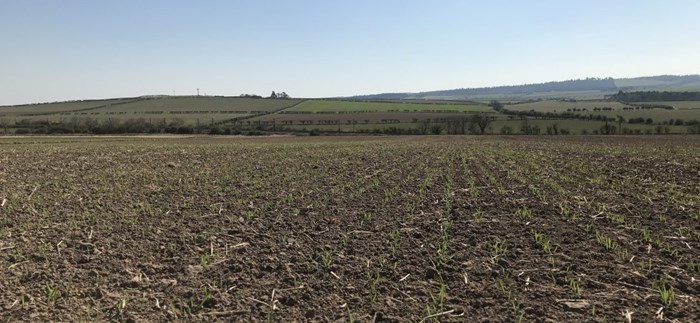- 22 April 2021

Non-inversion tillage at our spring barley trials site
For a number of years now, we have operated our own Spring Barley Variety Trials site at Beal Farm in Northumberland, as well as a Winter Wheat Variety Trials site at Mountfair Farm in the Scottish Borders.
By having these sites, it allows our team of agronomists to assess current varieties and new, up and coming varieties on a field scale basis, while also assisting with the advice they are able to offer their customers.
Our spring barley site was drilled on April 1 and, this year, it comprises a total of 17 varieties – some being brewing-only varieties, others distilling-only and also some dual-purpose (brewing and distilling) varieties.
However, the method in which the field was drilled was different to previous years. In the past, it has always been drilled through ploughing but, this year, as part of the company’s wider focus on sustainability, we’re trying to reduce our carbon emissions when producing these barleys.
Non-inversion tillage
So instead, we did a non-inversion tillage, which maintains at least 30% residue cover on the soil surface after drilling to reduce the risk of soil erosion, conserve soil organic matter and improve soil structural stability. Importantly, it also reduces fuel emissions and costs.
Then, post-harvest, we plan to trial a couple of different cover crops in this field ahead of the sowing of the trials in 2022. The benefits of this are mainly to do with soil, as cover crops will improve structure, retain nitrogen and improve organic matter.
They will also have a green manuring effect so ultimately, when it comes to the establishment of the spring barley, it will reduce the tillage required to create a seedbed.
As always, we look forward to following the progress of these spring barley varieties throughout the growing season and seeing which ones have the potential to be the Concertos and Laureates of the future.

